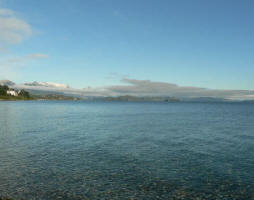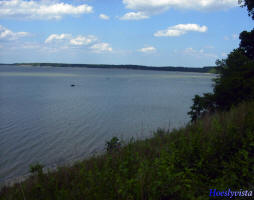 Achieving equitable access to water and sanitation still requires action throughout the UNECE region, east and west
Achieving equitable access to water and sanitation still requires action throughout the UNECE region, east and west
Throughout the UNECE region, several groups of society do not benefit from equitable access to water and sanitation. This was one of the main conclusions of the “Workshop on Equitable Access to Water and Sanitation” organized by UNECE, in close cooperation with the Government of France, on 4 and 5 July 2011 in Geneva.
Opening the workshop, Mr. Jan Kubis, Executive Secretary, UNECE, highlighted that “special measures, including both tariffs and social measures, need to be put into place to ensure affordability of water and sanitation”. This was owing to “growing levels of poverty throughout the region, including in its western part”, which would put pressure on household incomes available for water and sanitation. At the same time, cost recovery of water and sanitation services were being progressively introduced in the region and in many cases that translated into increases in water tariffs. All of this “might result in an increasing number of persons not able to afford the price of water”, Mr. Kubis warned.
The Workshop spotlighted three dimensions of the major inequities faced in access to water and sanitation in the region:
- The place where people live: in many countries people living in rural areas have significantly lower levels of access to safe water and improved sanitation.
- Socio-cultural differences: persons belonging to vulnerable and marginalized groups (such as Roma and Travellers, ethnic minorities, migrants, illegal settlers, slum dwellers, or people with disabilities) often face additional barriers to access.
- Socio-economic status: for persons with low income, the regular price of water and sanitation services may be unaffordable and prevent them from enjoying a basic level of services.
It was also noted that geographical, financial and social differences were closely interlinked. For instance, those living in rural areas, as they were often poorer, in relative terms, than city dwellers, were faced with the dual problem of the affordability of and access to water and sanitation services.
Among progress achieved in this area, Hungary, for example, said it had recently introduced the figure of the Parliamentary Commissioner for Future Generations, whose tasks were to monitor the legislative measures ensuring the sustainability and improvement of the state of the environment, to investigate anomalies and to initiate general or specific measures to remediate them.
Measures were also often taken at the municipal level. “For the city of Paris”, for example, as explained by Anne Le Strat, Deputy Mayor of Paris responsible for water and sanitation, “the objective is to ensure access to water at an affordable price for all. To achieve this goal, we have put in place a social support system for water, curative and preventive, to address the needs of the population with great difficulty. In 2010, we have allocated approx. EUR 4 million for such allowances.”
The city of Belgrade, in Serbia, had developed an action plan to reduce the number of the 130 unhygienic Roma settlements, including access to water and sanitation as an important component.
It was clear that national and local policymakers, private and public water operators, civil society groups and non-governmental organizations NGOs all had an important role to play and their impact could potentially be multiplied if they joined forces. In France, local authorities were supported by all French water sector partners in funding so-called “decentralized cooperation action”, combining sources from the local authority’s budget as well as from water bills to finance access to water and sanitation in less favoured countries.
Anna Tsvietkova, representative of the Ukranian NGO “Mama-86,” explained that “public awareness is a key component of the policy response to assure that the human right to water and sanitation becomes a reality for all groups of society so that no one is left behind.”She also said that Mama-86’s role in advocacy and public awareness had led to the reduction of child mortality from nitrate poisoning in Poltava Oblast, Ukraine.
“Achieving equitable access to water and sanitation requires action by all”, concluded the workshop Chair, French Deputy André Flajolet. He stressed that the human right to water and sanitation had, since the recent resolutions by the UN General Assembly and the Human Rights Council, “become universal for all persons and obliges Governments to act.” As President of the French National Water Committee, he explained that it adopted a resolution with a recommendation to limit the water bill to 3% of real income of families and to put in place a system of solidarity financing for each individual bill. In addition, a working group will develop proposals to facilitate the access to water for non sedentary populations. Mr. Flajolet encouraged “governments, local authorities, private and public water operators, civil society, researchers, NGOs and others stakeholder to join forces to shed light on existing inequities and inspire progress towards the achievement of equitable access to water and sanitation for all”.
For more information, please visit the web site of UNECE: Workshop website,http://www.unece.org/env/water/meetings/equitable_access_workshop.html
Contacts:
Ms. Francesca Bernardini
Co-Secretary of the Protocol on Water and Health
United Nations Economic Commission for Europe
Environment Division
Tel.: +41 22 917 24 63
E-mail: francesca.bernardini@unece.orgMs. Franziska Hirsch
Environmental Affairs Officer
United Nations Economic Commission for Europe
Environment Division
Tel.: +41 22 917 24 80
E-mail: franziska.hirsch@unece.org
Note to editors:
The UNECE/WHO-EURO Protocol on Water and Health to the UNECE Convention on the Protection and Use of Transboundary Watercourses and International Lakes (Water Convention) aims to provide universal access to water supply and sanitation while the quality of the water supplied should be adequate and does not constitute a potential danger to human health. This includes the protection of water resources which are used as sources of drinking water, treatment of water and the establishment, improvement and maintenance of collective systems. To this end, the Protocol requires Parties to take positive measures to assist individuals and communities to enjoy access to safe water and adequate sanitation, measures which are tailored to the countries’ social, economic and environmental conditions. Moreover, the Protocol includes far-reaching provisions on public information, public participation and access to justice, public awareness and education. It also includes provisions on international duty of solidarity requiring Parties to assist each other to achieve the objectives of the Protocol.
The Protocol also contains provisions on non-discrimination. In particular, it requires that “equitable access to water, adequate in terms both of quantity and of quality, should be provided for all members of the population, especially those who suffer a disadvantage or social exclusion”. The Protocol thus illustrates and embodies the close linkages between human rights, health, environmental protection and sustainable development.
Ref: ECE/ENV/11/P31
| Contact information |
Ms. Francesca Bernardini
(email: francesca.bernardini@unece.org) |
|---|---|
| News type | Inbrief |
| File link |
http://www.unece.org/press/pr2011/11env_p31e.html |
| Source of information | http://www.unece.org |
| Keyword(s) | water management, water planning, water quality, water quality improvement, irrigation, infrastructures, agriculture, environmental policy, environment |
| Subject(s) | CHARACTERISTICAL PARAMETERS OF WATERS AND SLUDGES , DRINKING WATER , DRINKING WATER AND SANITATION : COMMON PROCESSES OF PURIFICATION AND TREATMENT , HEALTH - HYGIENE - PATHOGENIC MICROORGANISM , HYDRAULICS - HYDROLOGY , INFORMATION - COMPUTER SCIENCES , POLICY-WATER POLICY AND WATER MANAGEMENT , PREVENTION AND NUISANCES POLLUTION , RIGHT , RISKS AND CLIMATOLOGY , WATER DEMAND , WATER QUALITY |
| Relation | http://www.unece.org/env/water/meetings/equitable_access_workshop.html |
| Geographical coverage | n/a |
| News date | 22/07/2011 |
| Working language(s) | ENGLISH |
 you are not logged in
you are not logged in





